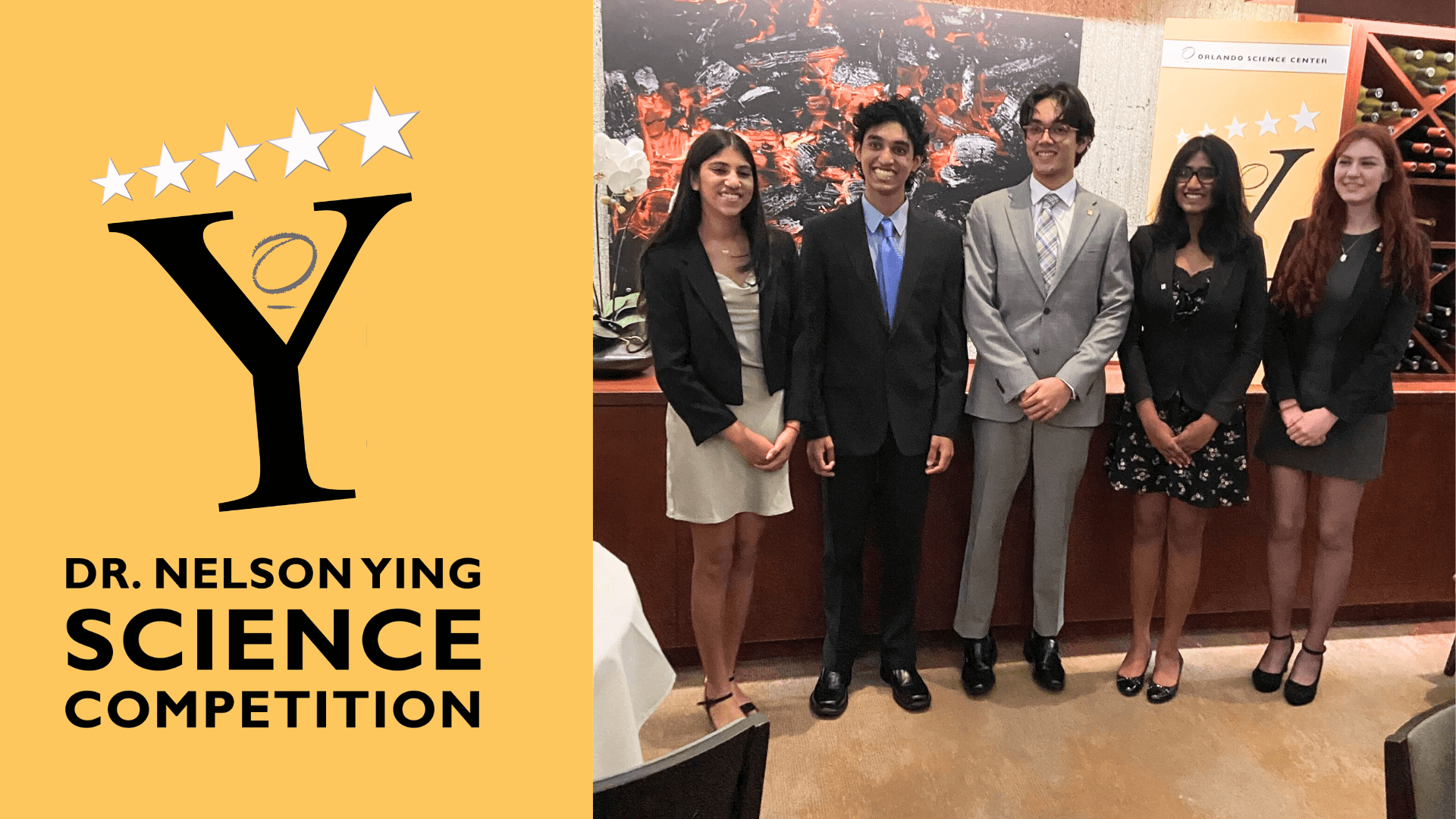Orlando Teen Invents Non-Toxic, Cost-Effective Organic Pesticide Using Beer Wins Top Prize at Orlando Science Center’s Dr. Nelson Ying Science Competition
Orlando teen Atreya Manaswi, a sophomore at Orlando Science High School in Orange County, has won the top prize in the prestigious Dr. Nelson Ying Science Competition at Orlando Science Center. His research project, which used a beer blend to create a non-toxic, non-expensive organic alternative to chemical pesticides, won a scholarship of $5,000, a $1,000 award for his science teacher, and an additional $1,000 for their school.
Atreya was named winner during an awards ceremony on April 30 after presenting his findings to the judges panel the previous day. For 25 years, Dr. Nelson Ying — local scientist, entrepreneur and philanthropist — has partnered with Orlando Science Center to celebrate outstanding student scientists through his creation and sponsorship of this competition.
Atreya’s winning project is part of his multi-year research effort to address the decline of the world’s honeybee population, which is responsible for pollinating 80% of the world’s food crops. Since 1947, honeybees have declined worldwide by 50% with two of the biggest causes being pests and chemicals. His organic solution, based on the chemical composition of beer, is just as effective as chemical pesticide, but it’s non-toxic and 80 times cheaper. Globally, it could save $1 billion dollars annually with no risk of contamination.
To compete in the competition, each entrant must be a Florida high school student pursuing a research project that has the ultimate goal of benefiting humanity. This year, submissions were accepted from throughout the state and finalists included students from Central Florida as well as Fort Lauderdale and Tallahassee. Projects ranged from creating algorithms that identify behaviors that could lead to recidivism in paroled convicts to developing biodegradable bone implants to training honeybees to pollinate endangered plant species. In addition to the grand prize winner, each finalist received cash prizes to continue their research.
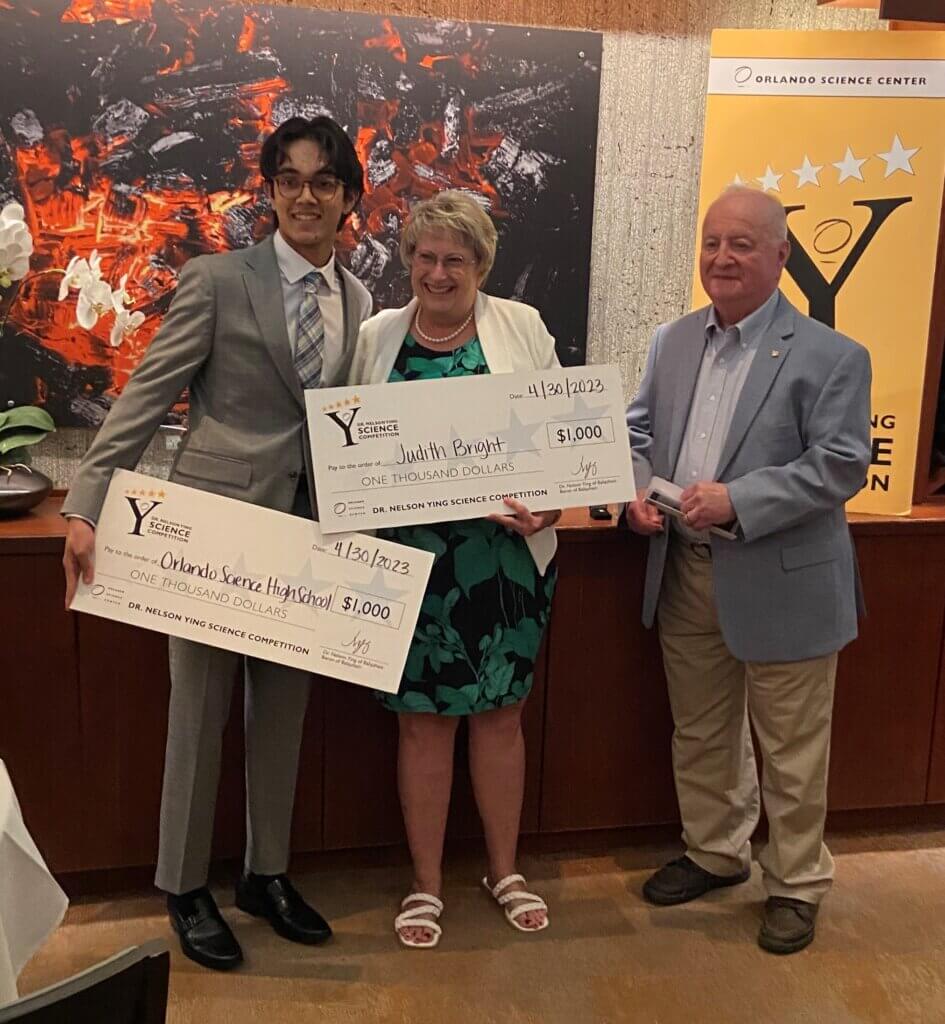
Meet the Finalists!
Ashna Mathur, Sophomore, Lake Highland Preparatory School, Orlando
Currently, surgeons use inert metals for bone implants following injury, which ultimately need to be removed because they can’t be absorbed by the body. To prevent these costly and time-consuming surgeries, Ashna developed implants with Magnesium, which is biodegradable. She mixed Magnesium with Scandium, Strontium and bio glass nanoparticles to enhance its mechanical properties and promote bone growth.
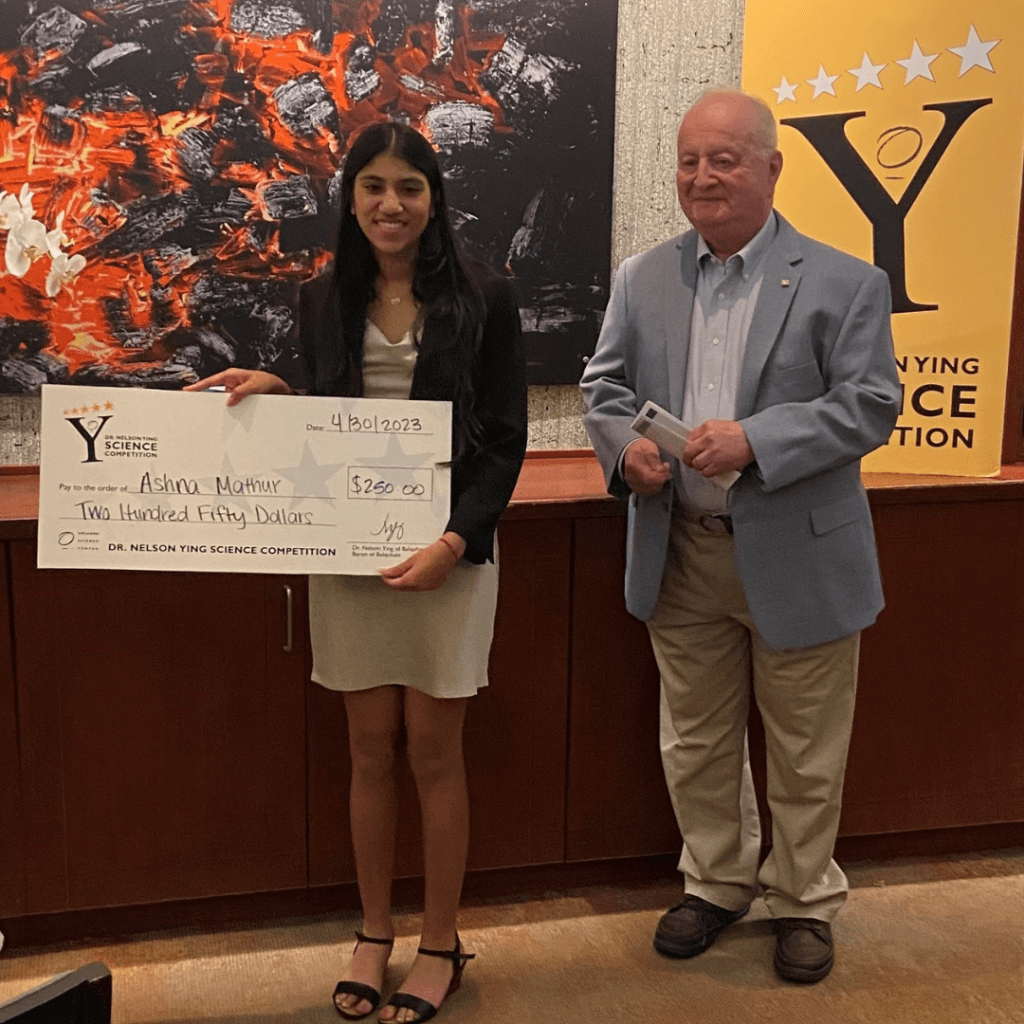
Joshua Martoma, Junior, Pine Crest School, Fort Lauderdale
The United States has the largest incarceration rate in the world with 68% of people in prison returning to prison. Joshua created a machine learning algorithm to identify the risk factors involved with paroled convicts to predict the likelihood of them returning to prison. The goal of his research is to increase the fairness, accuracy and transparency of existing tools to help prevent recidivism amongst this population.
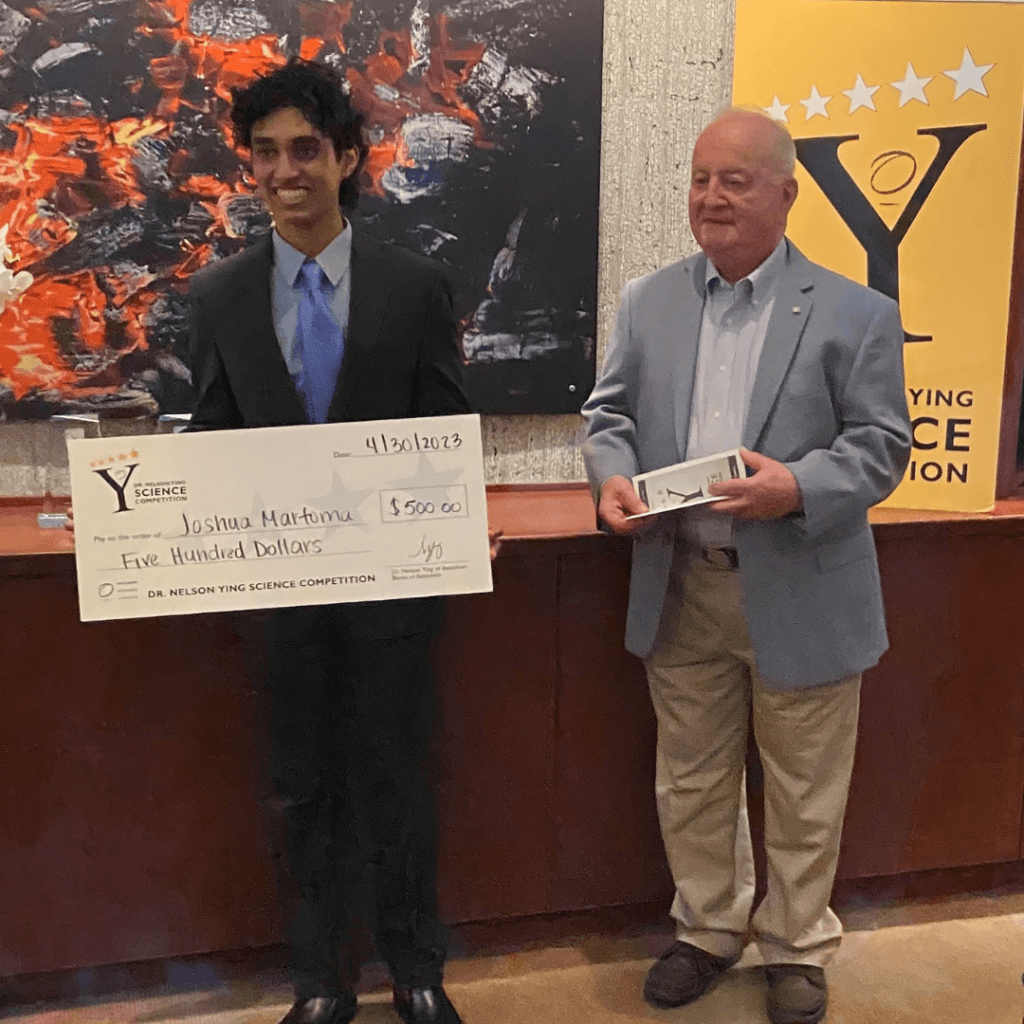
Ella Pilacek, Junior, Oviedo High School, Oviedo
Many species of indigenous plants are endangered in Florida due to habitat fragmentation, which results in plants being separated from native pollinator species. Ella trained honeybees to pollinate endangered plant species through Pavlovian conditioning. She repeatedly fed bees a food solution while also feeding them the scent of the endangered plant. Honeybees would associate the scent with a good food source so they would pollinate endangered plants that they would have ignored otherwise.
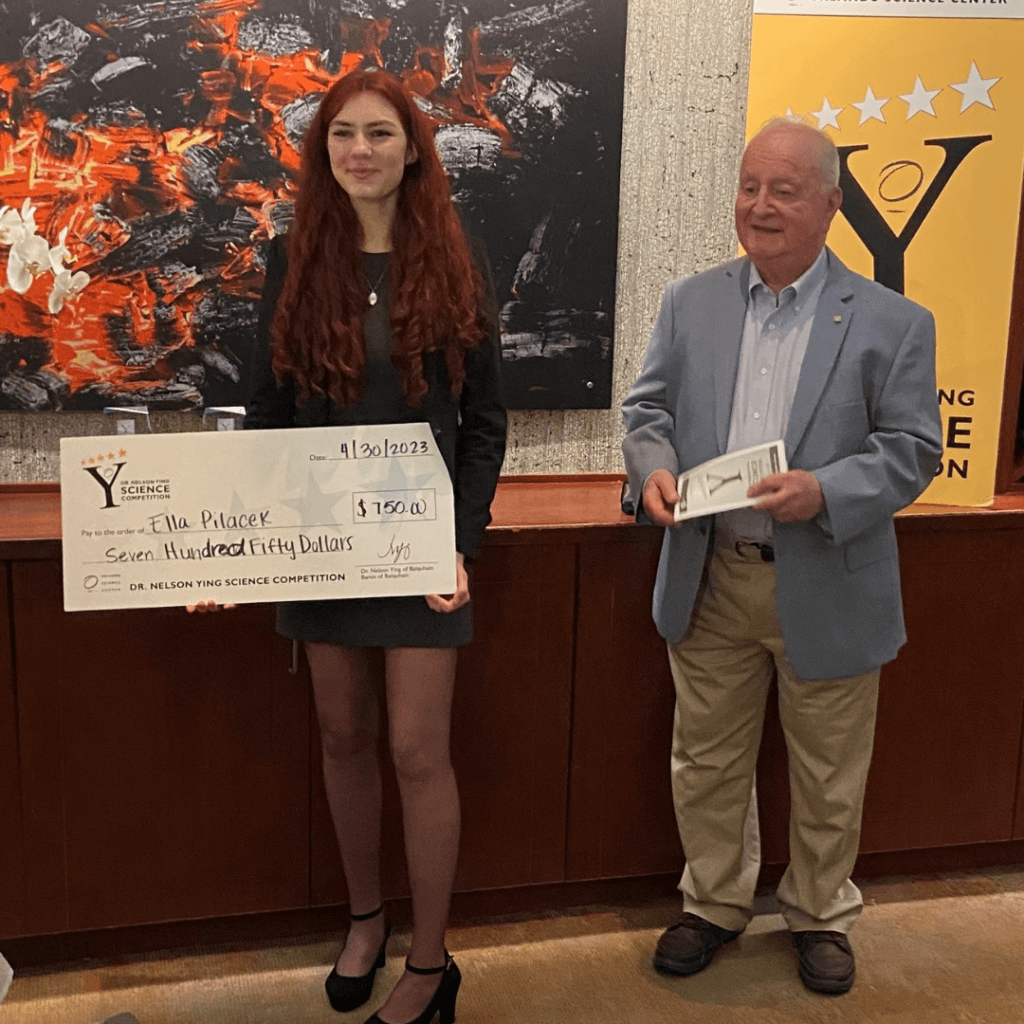
Sruthi Sentil, Senior, James S. Rickards High School, Tallahassee
The world’s citrus population has been devastated by many invasive species of insects. Sruthi focused on the insect Citrus Psyllid and created a device to imitate its mating call. She was able to use these mating calls to lure this pest away from citrus crops and attract them to traps. She also determined that this process could be used on other pest insects to positively impact citrus production worldwide.
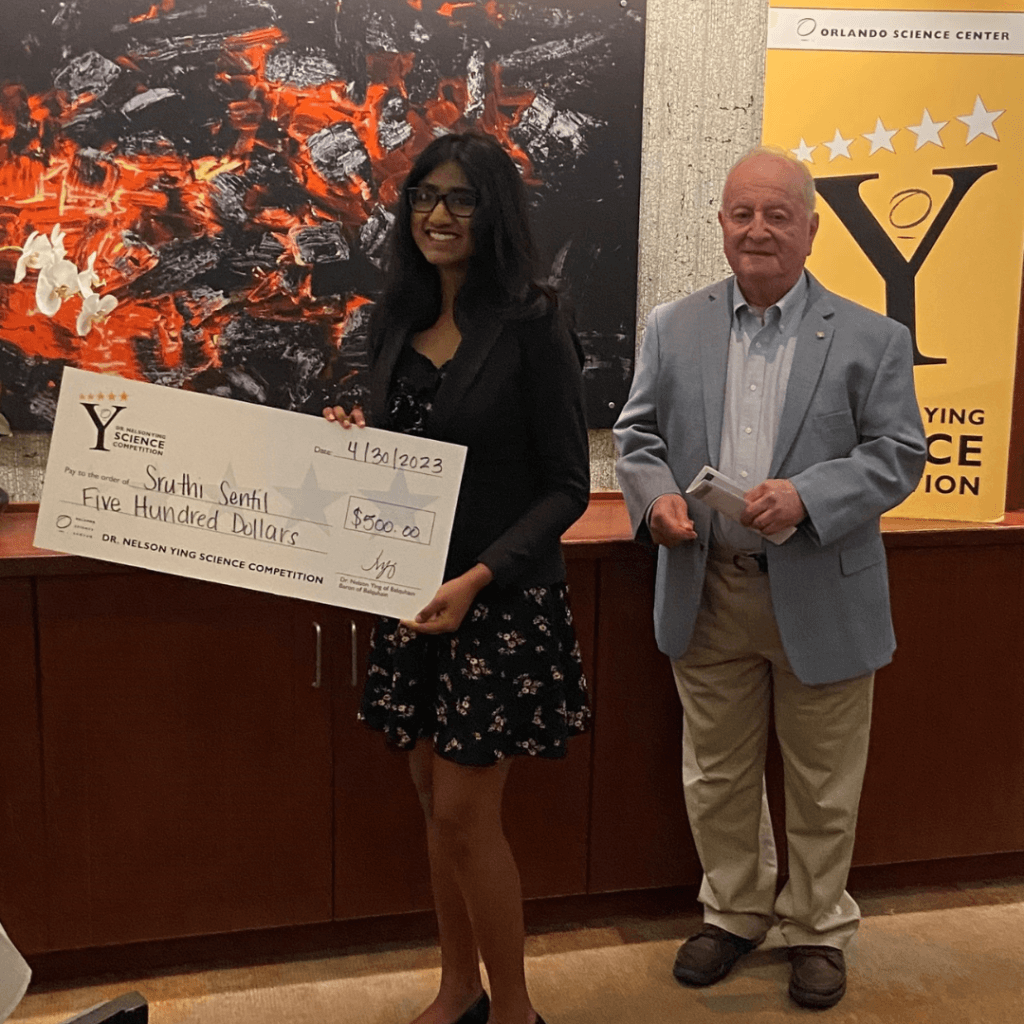
The Dr. Nelson Ying Science Competition has been encouraging tomorrow’s problem solvers and world changers since 1999. Scientist, inventor and entrepreneur Dr. Nelson Ying created this competition in partnership with Orlando Science Center to inspire exemplary science students to use their expertise to address real-world problems. Previous winners of this competition have gone on to continue their research at top universities, compete in national science competitions and ultimately pursue exciting STEM careers, including positions at NASA’s Jet Propulsion Laboratory.
